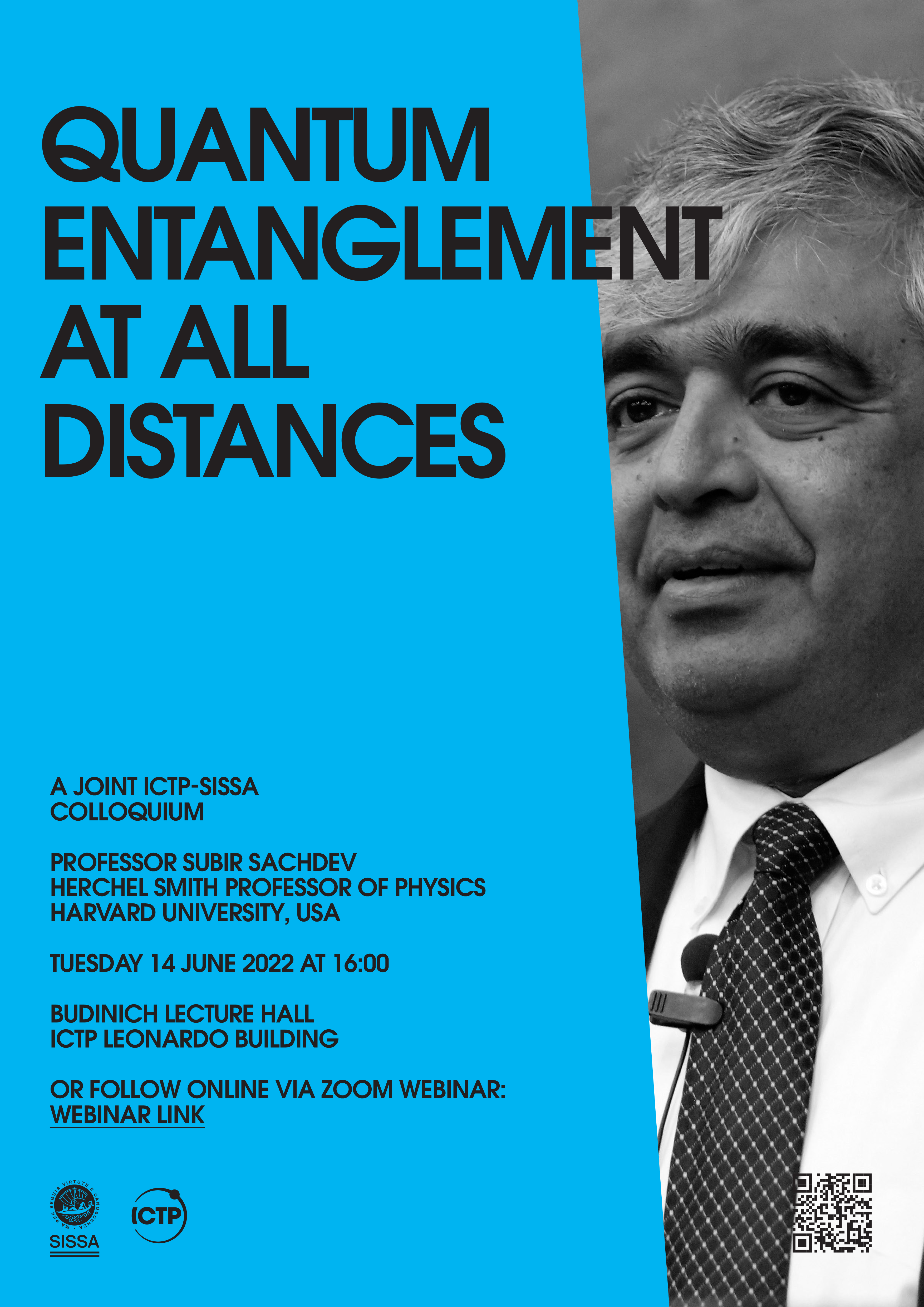
Entanglement is the strangest feature of quantum theory, often dubbed ''spooky action at a distance’’. Quantum entanglement can occur on a macroscopic scale with trillions of electrons, leading to novel superconductors which can conduct electricity without resistance even at relatively high temperatures. These superconductors also display a “strange metal” regime in which individual electrons lose their identity. Related entanglement structures arise across the horizon of a black hole and give rise to Hawking’s quantum paradox.
Prof. Subir Sachdev will introduce and describe these long-standing problems in two very different fields of physics, and review progress in resolving them using insights from the Sachdev-Ye-Kitaev model.
Subir Sachdev is a condensed matter physicist. He was educated in India before attending MIT and Harvard where he obtained his PhD degree in theoretical physics. He is a member of the National Academy of Sciences, fellow of the American Physical Society and has been awarded several honors, among them the Lorentz Chair, Instituut-Lorentz, Leiden University in 2012, and the Salam Distinguished Lecturer at the International Center for Theoretical Physics, Trieste in 2014.
His research seeks to illuminate the boundary between the everyday world we live in —in which many but not all phenomena can be explained through classical physics— and the subatomic world of quantum physics. These two worlds come together at a "quantum phase transition”, where there is a change in the macroscopic character of the quantum state describing a many-particle system, and manifestations of quantum entanglement appear naturally at long distances.
The seminar is scheduled for Tuesday, June 14th at 4 pm, live from the Budinich Hall at ICTP Leonardo Building.
The event will also be livestreamed as a webinar. Registration is required at this link:


